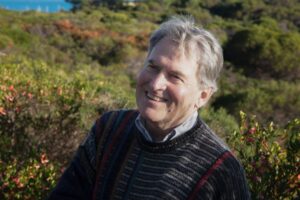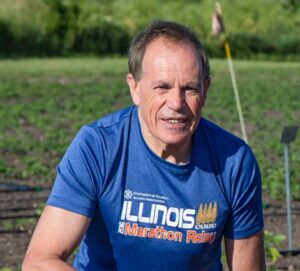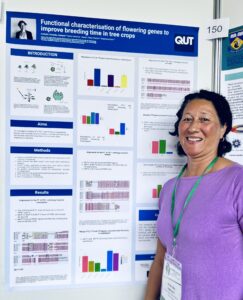- About
- Members
- Join
- Member log in
- Membership Renewal
- Member directory
- Life Members
- ASPS Life Member Professor Graham Farquhar
- ASPS Life Member Associate Professor Hendrik (Hank) Greenway
- ASPS Life Member Dr Marshall (Hal) D Hatch
- ASPS Life Member Dr Paul E Kriedmann
- ASPS Life Member Dr Mervyn Ludlow
- ASPS Life Member Emeritus Professor Rana Munns
- ASPS Life Member Conjoint Professor Christina E Offler
- ASPS Life Member Professor (Charles) Barry Osmond
- ASPS Life Member Emeritus Professor John W Patrick
- ASPS Life Member Dr Joe Wiskich
- Corresponding Members
- Elected Fellows
- Events
- Awards & Funding
- Employment
- Publications
- Research
- Teaching
- Menu
Save the date for the ASPS Hybrid meeting and January Phytogen and GPC bulletin.
01 February 2024
Hello ASPS members,
Welcome to 2024.
Save the date for our 2024 ASPS Hybrid meeting in your state, Thursday 28th November 2024.
Thank you to Dr Georgia Koerber for her service to our Society as Phytogen’s Editor for the past 5 years. The January edition of Phytogen includes profiles of the latest ASPS Life member, Emeritus Professor Hans Lambers and Corresponding Member, Professor Steve Long. Yuhan Liu and Amanda Johnson’s award reports are also included. Access Phytogen HERE.
The January newsletter for The Global Plant Council is available HERE.
January 2024 a new year for Plant Science
31 January 2024
Welcome to Phytogen for 2024.
In this edition we start the year with a new ASPS Life Member Emeritus Professor Hans Lambers and new Corresponding member Professor Steve Long. Details below.
The 2023 Plant nutrition Trust report by Yuhan Liu.
Amanda Johnson’s report on her ASPS student travel award.
Remember to save the date for the ASPS Hybrid meeting in your state, Thursday 28th November 2024.
Thank you to Dr Georgia Koerber for her service to our Society as Phytogen’s Editor for the past 4 years.
ASPS Life Member Emeritus Professor Hans Lambers
University of Western Australia
Hans Lambers was born in the Netherlands and finished his PhD in 1979. He was appointed Professor of Ecophysiology at Utrecht University in 1985. In 1998, he migrated to Australia, where he was appointed Professor of Plant Biology/Ecology at the University of Western Australia, a position he held from 1998 until 2017, when he retired. He was Inaugural Head of School of Plant Biology from 2002 till 2013. At the University of Western Australia, he studied mineral nutrition of Australian native species, seeking to discover how some Australian plants acquire phosphorus from depauperate soil and use it very efficiently. In 2006, he established the Kwongan Foundation, which supports research and outreach aimed at improving conservation strategies for endangered plants.
Hans has an international reputation for his work on plant respiration, plant nutrition, plant growth and productivity, and plant-soil interactions. He has published >600 papers, and features on Highly Cited lists of Clarivate in Plant and Animal Sciences and Agriculture. Hans was elected to the Royal Netherlands Academy of Arts and Sciences in 2003, and to the Australian Academy of Science in 2012. He has received Honorary Professorships from several Chinese institutions, including China Agricultural University, Chinese Academy of Sciences, Shenyang Agricultural University, and Jiangxi Agricultural University, and was appointed as Distinguished Professor at the National Academy of Agriculture Green Development at China Agricultural University in 2018. His ground-breaking research and dedication to conservation has also been recognised by a Lifetime Achievement Award of the International Society of Root Research (2018) and a John Oldham Conservation Employee Award from the Conservation Council of WA (2019), respectively.
Hans was President of the Australian Society of Plant Scientists from 2001 through 2003 and, from 1992 until 1998, served as Secretary General of the Federation of European Societies of Plant Physiology. He is a strong supporter of tertiary education and active learning, with insights gained from his teaching and research leading to the production of the textbook Plant Physiological Ecology.
Email: hans.lambers@uwa.edu.au
Website: View website
ASPS Corresponding Member Professor Steve Long
 University of Illinois
University of Illinois
slong@illinois.edu View website
Corresponding member 2024-2029
Steve Long holds the Ikenberry University Chair of Plant Biology and Crop Sciences at the University of Illinois. He is a Fellow of the Royal Society and a Member of the US National Academy of Sciences. His photosynthesis research spans from carbon metabolism to field crops; with a focus on bioengineering sustainable yield increases under global change. Early in his career, inspired by the pioneering work of Australian plant scientists on C4 photosynthesis and its implications for productivity, he identified C4 species that were successful in cold climates. This included the identification of Miscanthus x giganteus as a highly productive cold tolerant C4 species and understanding of how these species evaded the damage to the photosynthetic apparatus that sugarcane, maize and sorghum suffered under chilling conditions. His current research includes bioengineering approaches to improving tolerance in these crops. He also identified the highest net primary productivity known of any natural terrestrial system in C4 Echinochloa polystachya a grass on the Amazon floodplain. He led the development of Free-Air CO2 Enrichment experiments to understand the impacts of rising CO2 on maize and soybean crops under open-air field conditions, and how photosynthesis may be modified to ameliorate climate change impacts. Last year his team’s in silico and subsequent in vivo engineering of photosynthesis led to a more than 25% increase in soybean yields in replicated field trials. Steve is passionate about major opportunities to increase the efficiency of photosynthesis to allow sustainable crop yield increases under climate change as outlined in his recent TEDtalk. He is Founding and Chief Editor of the journals Global Change Biology, Global Change Biology-Bioenergy, and in silico Plants. He has given briefings on global food security and on bioenergy to President at the White House, to the Vatican, and to Bill Gates.
The 2023 Plant Nutrition Trust Awards Travel Report
By Yuhan Liu
Integrative Legume Research Group, School of Agriculture & Food Sustainability
The University of Queensland
With the support of the Plant Nutrition Trust Award, I attended the 15th European Nitrogen
Fixation Conference (ENFC) at Naples, Italy from 31st August to 3rd September 2023 along
with 331 attendees including 91 PhD students. A satellite meeting on signalling in nitrogen
fixation was held on the first day where I was invited for an oral presentation and my talk
Root meristem growth factor peptides and their effects on root development and nodulation
in soybean was well received. The opening lecture of main conference was provided by Prof.
Marcel Kuypers from the Max Planck Institute of Marine Microbiology. It was insightful about
the importance of microbial nitrogen fixation in the changing ocean and its vital role across
all ecosystems.
The remainder of the conference combined classic topics on legume BNF and a timely theme
about the BNF impacts on the environment and climate change. Two legume model plants,
Medicago truncatula and Lotus japonicus were the most studied across research groups.
While more agriculturally relevant species were less studies due to their larger physiological
structure or complex genetics. Additionally, the use of synthetic biology in engineering
nitrogen fixation in non-legume plants such as cereals was discussed. The long-term aim of
developing this in other plants requires the backbone of the signalling mechanisms in legume
BNF. Some fascinating discussions about the changes of rhizobium nutritional status during
early root hair infection have offered insights into the progressive bacterial nutrient limitation
observed when immobilized in mature infection threads. These findings suggest a potential
association between rhizobia nutritional imbalance and gradual stiffening of the plant cell
wall. Furthermore, some other presentations discussed the impact of arbuscular mycorrhizal
fungi (AMF) on nodulation. Notably, experiments involving double inoculation of rhizobia and
AMF suggested an increase of legume nodulation attributed to the rising phosphorus uptake.
This raises further investigations about the tripartite association between legume, rhizobia
and AMF. As such, examining the distinct roles of the peptide hormones and other
components in symbiosis is essential to understanding how nodulation and mineral
fertilization efficiency impact on biomass and agroecosystem.
The concluding remarks were presented by Prof. Ray Dixon from the John Innes Center, UK.
It was fulfilled with inspiring thoughts and future challenges, such as the gap between
laboratory investigations and the success of field work which needs a scientific breakthrough.
Teamwork and collaboration were present throughout with well-developed research
cooperation within European groups being reflected in final acknowledgements of each
presentation.
In addition to attending the conference, I visited two world-leading research groups,
Professor Tom Beeckman in the Root Development department and Professor Sofie
Goormachtig in the Rhizosphere department at the VIB- UGent Center for plant system
biology on 7th September. I discussed the signalling peptide work in model plant, Arabidopsis
thaliana and my legume investigation with each team, respectively. These visits were very
rewarding. I also gave an oral presentation to the two groups and introduced Australia and
UQ research to promote the future collaboration. Finally, visiting their research facilities
including labs and glasshouses broadened my vision about leading agricultural research in
Europe.
I would like to express my gratitude for receiving Plant Nutrition Trust Travel Award. Beyond
the financial support, I am grateful for the recognition of what I have accomplished in my PhD
so far. I felt honoured as an awardee and acknowledged the award support during my
presentations and will continue to acknowledge the support in my future presentations,
research publication and PhD dissertation
ASPS report for Student Travel Award 2023 – Amanda Johnson 
My name is Amanda Johnson, I am a PhD student at the Queensland University of Technology. My research is on genes that control flowering in avocado, mango, and macadamia trees. I am a molecular biologist with a background in plant protection. I am characterizing paralogs of flowering Locus T a floral promoter and terminal flowering locus 1 a repressor of flowering. I attended the 2023 Australian Society of Plant Scientists conference in Hobart from the 28th of November to the 1st of December 2023, held at the University of Tasmania. I presented a poster (number 148). I would like to thank the ASPS for awarding me financially and making it possible to attend.
I enjoyed being able to network with other students and members of the plant society. The poster sessions were great, I got to present my work and see other students’ work as well. I really enjoyed the Earth and Beyond session and the panel discussion that followed. The keynote speaker Gioia Massa from NASA was brilliant as were all members of the panel. I got a lot out of the presentations in each of the sessions and enjoyed being able to approach the speakers afterwards. I attended the AGM and found it informative. I like how the society encourages participation from all age groups and sexes, however, I did notice a session where the male older facilitator did not involve the younger woman facilitator of Shri Lankan descent in any introduction of speakers. This was noticed by several people.
ASPS AGM reports and agenda
30 November 2023
Hello ASPS members,
Our annual AGM meeting will be held today at 4.35 pm.
You have access to the agenda and reports through the ASPS website HERE.
See you at the meeting.
ASPS job board, ASPS2023 and GPC E-bulletin.
23 October 2023
JXB Editorial Interns 2024
25 September 2023
Given the success of the first round, we have just announced a call for the second round of JXB Editorial Internships for 2024. The aim of these internships is to provide early career researchers with experience of scientific publishing from the editorial side, as an opportunity for career development as a researcher or with a view to a career in scientific publishing. We’d really appreciate it if you could help disseminate this call around your institute and network where appropriate.
Full details: https://academic.oup.com/jxb/pages/editorial-internships-call-for-applicants
Invitation for an Expression of interest for the Threatened Species Scientific Committee.
23 August 2023
Hello ASPS members,
Updates on our annual conference ASPS 2023 can be accessed HERE.
Last editions of Phytogen can be accessed HERE and HERE.
Last GPC E-bulletin can be accessed HERE.
Last STA newsletter can be accessed HERE.
Invitation for an Expression of interest for the Threatened Species Scientific Committee.
A call for expressions of interest for membership of the Australian Government’s Threatened Species Scientific Committee has now been published.
This is an opportunity to play a pivotal role in protection of Australia’s biodiversity. We would be grateful if you would share this invitation with members of your organisation.
Full details can be found on the Department of Climate Change, Energy, the Environment and Water’s website: Expressions of interest open for the Threatened Species Scientific Committee – DCCEEW
The expression of interest is open until 17 September 2023.
For more information on the position, please contact Anthea Brecknell at TSSCSecretariat@dcceew.gov.au
Nominate a female scientist and STEM Career Pathways survey.
02 June 2023
Dear ASPS Members,
Please consider nominating a female plant scientist (or self-nominating) for the 2023 Jan Anderson Award (https://www.asps.org.au/awards). The research must have been done within 15 years of the PhD, or within 15 cumulative years of employment subsequent to the year in which the PhD thesis was submitted (excluding career breaks). The closing date for the 2023 award is now 30th June, 2023.
|
|
|
|
|
|
|
|
|
May Phytogen out now. GPC and STA newsletters
31 May 2023
Hello ASPS members,
The May edition of Phytogen is out now and can be accessed HERE.
The GPC e-bulletin can be accessed HERE for May edition, HERE for April edition.
STA newsletters can be accessed HERE
31 May 2023
Hello ASPS members,
The May edition of Phytogen is out now and can be accessed HERE.
The GPC e-bulletin can be accessed HERE for May edition, HERE for April edition.
STA newsletters can be accessed HERE
Renew, NZSPB conference at member rates and updates.
24 April 2023
Hello ASPS members,
Your membership is paid to . You can renew your ASPS membership HERE.
Not sure how to login? The e-mail address you received this newsletter is your username which you can use to request a new password.
As an ASPS member you can register for the New Zealand Society of Plant Biologists annual conference at member rates. Abstracts are due April 28th. See conference details HERE.
Remember to check the GPC and STA websites for the latest news, initiatives, webinars, and opportunities.
GPC website GPC newsletter archive
STA website STA newsletter through LinkedIn STA news
And ASPS2023 will be in Hobart in Nov. Keep updated HERE.
Recent Posts
Tags
Archives
- June 2025
- May 2025
- April 2025
- March 2025
- February 2025
- January 2025
- December 2024
- November 2024
- October 2024
- September 2024
- August 2024
- July 2024
- June 2024
- May 2024
- April 2024
- February 2024
- January 2024
- November 2023
- October 2023
- September 2023
- August 2023
- July 2023
- June 2023
- May 2023
- April 2023
- March 2023
- February 2023
- December 2022
- November 2022
- October 2022
- September 2022
- August 2022
- July 2022
- June 2022
- May 2022
- April 2022
- March 2022
- February 2022
- January 2022
- December 2021
- November 2021
- October 2021
- September 2021
- August 2021
- July 2021
- June 2021
- April 2021
- March 2021
- February 2021
- January 2021
- December 2020
- November 2020
- October 2020
- September 2020
- August 2020
- July 2020
- June 2020
- May 2020
- April 2020
- March 2020
- February 2020
- January 2020
- December 2019
- November 2019
- October 2019
- September 2019
- August 2019
- July 2019
- June 2019
- May 2019
- April 2019
- March 2019
- February 2019
- January 2019
- December 2018
- November 2018
- October 2018
- September 2018
- August 2018
- July 2018
- June 2018
- May 2018
- April 2018
- March 2018
- February 2018
- January 2018
- December 2017
- November 2017
- October 2017
- September 2017
- August 2017
- July 2017
- June 2017
- May 2017
- April 2017
- March 2017
- February 2017
- January 2017
- December 2016
- November 2016
- October 2016
- September 2016
- August 2016
- July 2016
- June 2016
- May 2016
- April 2016
- March 2016
- February 2016
- January 2016
- December 2015
- November 2015
- October 2015
- September 2015
- August 2015
- July 2015
- June 2015
- May 2015
- April 2015
- March 2015
- February 2015
- January 2015
- December 2014
- November 2014
- October 2014
- September 2014
- August 2014
- July 2014
- June 2014
Copyright 2017 Australian Society of Plant Scientists Disclaimer & Privacy
Website by Michael Major Media
